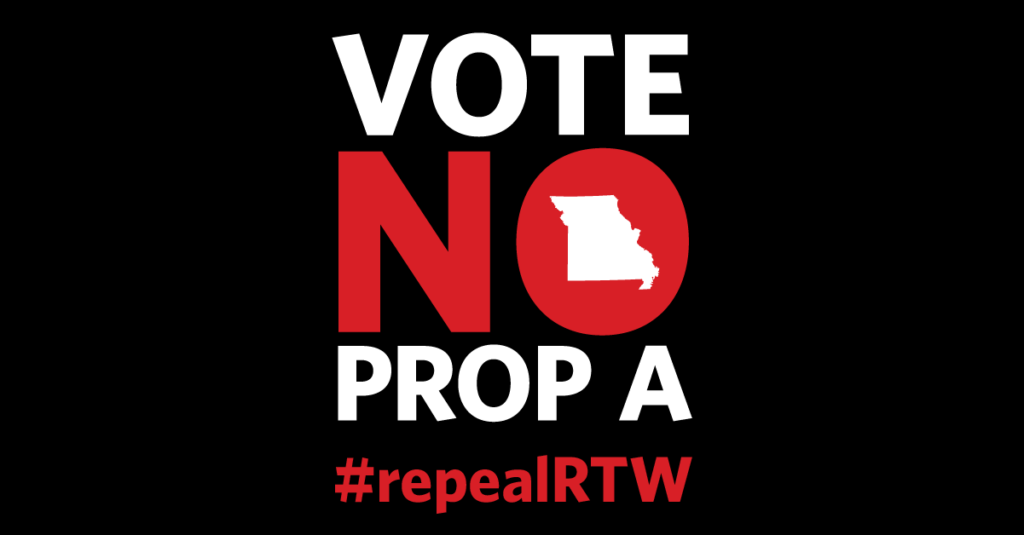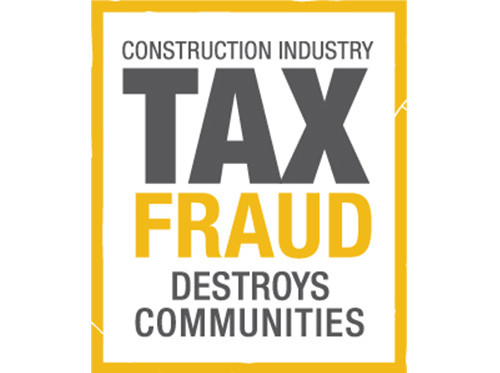What is Right to Work (RTW)?
For decades, anti-union ideological forces have led an assault against union rights in the U. S. These forces picked up the pace in recent years, and were able to pass so-called right-to-work laws in several states.
The term right-to-work is misleading and right-to-work laws certainly don’t give anyone any rights. They are designed to weaken unions, shrink the unionized percentage of the construction market (our market share), and put downward pressure on our wages and benefits.
In states with right-to-work laws, nothing changes between the employer and the workers, but the laws tie the union’s hands. In right-to-work states, a carpenter can work for a union contractor, get union-negotiated wage rates, participate in the union health and pension plans, and attend apprenticeship and other training programs at the union training center. But that carpenter is allowed to opt out of paying union dues.

Right to Work provisions (either by law or by constitutional provision) exist in 26 U.S. states. In 2018, voters in Missouri saw this for what it was and soundly rejected an attempt to make that state right-to-work. Union carpenters helped lead the effort to defeat it at the ballot box. If all union members remain strong and educate their fellow workers to discourage freeloading, we can still have a powerful presence in right to work states.
Under labor laws in the United States, the union as the exclusive collective bargaining agent has the responsibility of fair representation for all persons in the bargaining unit including those who choose not to be members and pay dues. The phrase “Right to Work” is a misnomer because the lack of such a law does not deprive anyone of the right to work; a RTW law simply affords employees the right to be “free riders”—to benefit from collective bargaining without paying for it.
Over time, Right to Work laws destroy unions. That’s their intent. Read more here: What’s Wrong with the “Right to Work”?
What is Prevailing Wage (Davis-Bacon Act)?
In 1931, Davis-Bacon prevailing wage act was passed by congress. According to the Department of Labor, “The Davis-Bacon and Related Acts, apply to contractors and subcontractors performing on federally funded or assisted contracts in excess of $2,000 for the construction, alteration, or repair (including painting and decorating) of public buildings or public works.” According to the Davis-Bacon Act, contractors must pay the prevailing wage—a combination of the basic hourly rate a and any fringe benefits—as listed in the Davis-Bacon wage determination based on the type of contract and the area in which the contract is being executed.
UBC members need to pay attention to the Davis-Bacon Act in order to ensure its enforcement. According to the Department of Labor, common problems include:
- Misclassification of laborers and mechanics.
- Failure to pay full prevailing wage, including fringe benefits, for all hours worked (including overtime hours).
- Inadequate record keeping, such as not counting all hours worked or not recording hours worked by an individual in two or more classifications during a day.
- Failure of to maintain a copy of bona fide apprenticeship program and individual registration documents for apprentices.
- Failure to submit certified payrolls weekly.
- Failure to post the Davis-Bacon poster and applicable wage determination.
The agency responsible for collecting and disseminating the prevailing wage data is the Wage and Hour Division of the United States Department of Labor. The procedure includes (1) planning and scheduling of surveys, (2) conducting the surveys, (3) clarifying and analyzing the respondents’ data and (4) issuing the wage determinations. Prevailing wage rates are established separately for each county, and are reflective of local wage conditions. Rates are calculated for each job classification based on the survey data, such as carpenters, electricians, laborers, etc. Trades are generally surveyed every three years to determine the prevailing wage rates.
Contractors we want cannot compete against less desirable contractors if we don’t enforce a level playing field with prevailing wage. That category of contractor is financially responsible and stable with a safe, trained, experienced workforce. A prevailing wage brings fairness, protection, productivity and prosperity to the workplace.
Tax Fraud
Considered the “dirty little secret” of the construction industry, tax fraud drains tax revenues and hurts honest employers every year. The UBC is working to make construction markets fair and honest again by helping officials fight this scourge.
Unscrupulous employers gain an unfair bidding advantage of up to 30 percent by knowingly misclassifying workers as independent contractors, paying in cash off the books, and running other scams—often simultaneously. They skirt the requirements to pay workers’ compensation, unemployment insurance, basic payroll taxes, wages, and overtime.
Union workers’ productivity makes contractors’ bids competitive, but only on a level playing field. That’s why the UBC is committed to providing legislators and agency leaders with the research, resources, and professional assistance needed to identify and crack down on construction industry tax fraud. To date, officials in nearly three dozen states have improved laws and enforcement, annually recapturing tens of millions in previously lost revenue. In some cases, workers’ compensation rates have dropped as well.
Fraud is not a union-only issue. Tax fraud affects the entire construction industry, shrinks public budgets, and even increases health care costs. The UBC is dedicated to shutting down this destructive criminal activity, regaining lost tax revenue and protecting taxpayers, honest employers and their employees.
What is Collective Bargaining?
Collective bargaining is the process in which working people, through their union representation, negotiate contracts with their employers to determine their terms of employment. This may include pay, benefits, hours, leave/vacation, job health and safety policies, work/life balance and more. Collective bargaining is a way to address and solve workplace problems.
The union may negotiate with a single employer (who is typically representing a company’s shareholders) or may negotiate with a group of businesses to reach an industrywide agreement. A collective agreement functions as a labor contract between an employer and one or more unions.
Collective bargaining builds and protects the middle class—for all workers, not just union members. Companies/Employers generally don’t just hand out fair wages and benefits. Middle-class wages and benefits—like health care, paid sick days, etc.—have been built over time by working people who come together to insist on fair standards. Ardently supporting the right to bargain collectively is critical to safeguarding workers’ rights and progressing middle-class standards, strength and growth.






